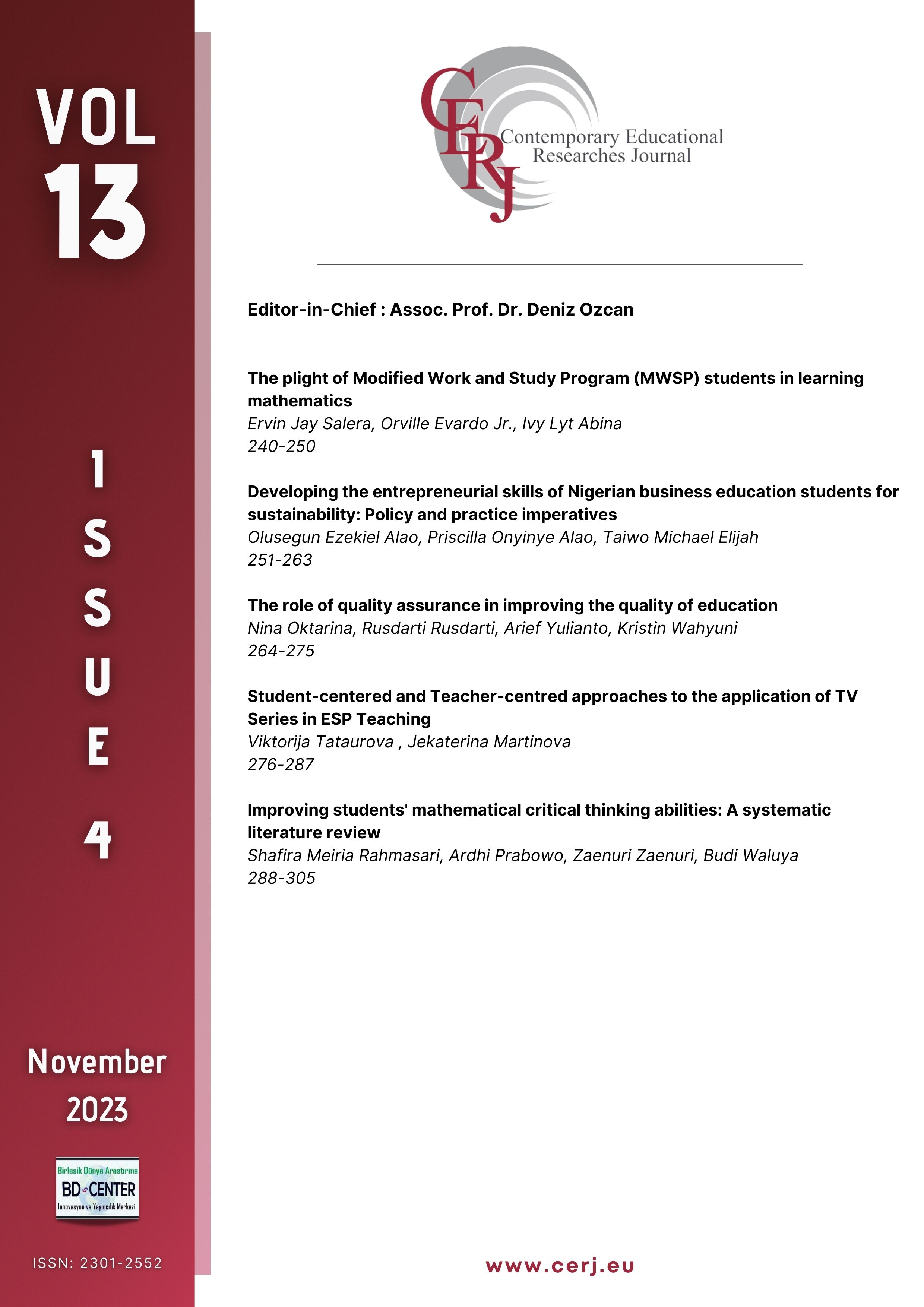Developing the entrepreneurial skills of Nigerian business education students for sustainability: Policy and practice imperatives
Main Article Content
Abstract
Despite the innumerable natural resources available in Nigeria for innovative job creation in green entrepreneurship, the rate of youth unemployment continues to escalate uncontrollably. This unpleasant situation stirred up the concern and commitment of the world leaders to embark on policy and practice of innovative and sustainable entrepreneurship education for proper empowerment of youth towards sustainability of the world economy. Business Education, as a vocational program, has not adequately aligned its curriculum policy and practice with the teaching and learning of green entrepreneurship in Nigeria. The study aims to analyze the entrepreneurial skills of Nigerian business education students for sustainability. The study focuses mainly on the ideal policy and innovative instructional practices, such as management and recycling of wastes, commercialization of green products, and engagement in agribusinesses, among others, that can be explored to adequately empower students of Business Education undergraduate programs for the realization of optimum social, economic and environmental sustainability in Nigeria.
Keywords: Business education; empowerment; green entrepreneurship; policy and practice; sustainability
Downloads
Article Details

This work is licensed under a Creative Commons Attribution-NonCommercial-NoDerivatives 4.0 International License.
Authors who publish with this journal agree to the following terms:
- Authors retain copyright and grant the journal right of first publication with the work simultaneously licensed under a Creative Commons Attribution License that allows others to share the work with an acknowledgement of the work's authorship and initial publication in this journal.
- Authors are able to enter into separate, additional contractual arrangements for the non-exclusive distribution of the journal's published version of the work (e.g., post it to an institutional repository or publish it in a book), with an acknowledgement of its initial publication in this journal.
- Authors are permitted and encouraged to post their work online (e.g., in institutional repositories or on their website) prior to and during the submission process, as it can lead to productive exchanges, as well as earlier and greater citation of published work (See The Effect of Open Access).
